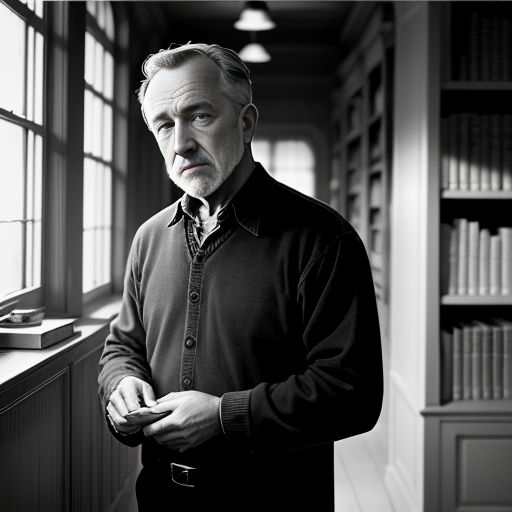
The Journey of John Steinbeck
By kbabrielle135

06 Sep, 2023

John Steinbeck, a name synonymous with American literature, was a man of versatile talent and creative prowess. His writing was unique, grounded in the harsh realities of life.

Steinbeck was born on February 27, 1902, in Salinas, California, a fertile valley largely inhabited by farmers and ranchers. His rural upbringing deeply influenced his works.

As a child, he showed an early interest in writing. He penned stories and poems, drawing inspiration from the world around him, especially the lives of migrant workers.

Steinbeck enrolled at Stanford University in 1919, intending to become a writer. However, he dropped out in 1925 without earning a degree, choosing to pursue writing full-time instead.

His first novel, "Cup of Gold," published in 1929, was not successful. However, Steinbeck's literary journey was just beginning, and he was far from discouraged.

The 1930s marked the start of Steinbeck's acknowledgment as a great writer. "Tortilla Flat" received the California Commonwealth Club's Gold Medal, propelling his fame.

Steinbeck's most famous work, "The Grapes of Wrath," published in 1939, was a Pulitzer Prize-winning novel. It depicted the struggles of migrant farm workers during the Great Depression.

A quote from Steinbeck's "The Grapes of Wrath" captures his profound understanding of humanity: "The last clear definite function of man—muscles aching to work, minds aching to create beyond the single need—this is man."

"East of Eden" is another one of Steinbeck's classics. Through its powerful storytelling and deep characterization, it examines the nature of good and evil.

Steinbeck's work was distinct from his contemporaries. Instead of focusing on the affluent or famous, he chose to highlight the lives of ordinary individuals grappling with harsh realities.

His narratives were replete with compassion and understanding, evoking empathy in his readers. He portrayed the resilience of the human spirit amidst life's daunting challenges.

Steinbeck was also a war correspondent for the New York Herald Tribune during WWII, further distinguishing him from other authors. His experiences during this time influenced his later works.

In 1962, Steinbeck's literary brilliance was recognized globally when he was awarded the Nobel Prize for Literature. It was a moment of triumph for the humble writer.

However, Steinbeck's response to winning was characteristic of his humility. He remarked, "I don't really deserve this, but I have arthritis and I don't deserve that either."

Despite controversies and criticisms, Steinbeck's work continued to resonate with readers worldwide. His novels were translated into numerous languages, spanning across cultural and geographical boundaries.

His works are cherished not merely for their artistic merit, but also for the light they shed on socio-economic issues of the time. His writings were, in essence, a social commentary.

Steinbeck was not just a writer but a thinker and observer. His ability to capture the human condition in his literature is what truly sets him apart.

Steinbeck passed away on December 20, 1968, from heart disease. His loss was deeply felt by the literary world, marking the end of an exceptional writing career.

Even after his death, Steinbeck's influence on American literature stands strong. His works continue to be taught in schools and universities around the world.

His characters, stories, and themes remain as relevant today as they were when first published. Steinbeck's work speaks to the enduring human spirit in times of hardship and change.

The legacy of John Steinbeck is carried by his readers and admirers. Each engagement with his work is a testament to his timeless appeal and his profound understanding of the human condition.

Reviewing Steinbeck's work, writer and critic Robert E. Morsberger once wrote, "Steinbeck put America on paper in a way that few other writers have."

Indeed, Steinbeck gave a voice to the voiceless, a narrative to the overlooked. Through his writings, he reminded us of the strength and tenacity inherent in all human beings.

Steinbeck's work continues to inspire generations of writers, igniting a passion for realistic and empathetic storytelling. He was, and always will be, one of literature's brightest luminaries.

Indeed, the journey of John Steinbeck, from a simple boy in Salinas Valley to one of the most revered authors of the 20th century, is a story of perseverance and dedication.

His life's work reminds us that literature is not just about crafting beautiful sentences. It's about evoking emotions, prompting thought, and ultimately, mirroring life itself.

John Steinbeck's enduring legacy will continue to inspire and inform generations to come. His works are a monument to his genius, a testament to the power of words.